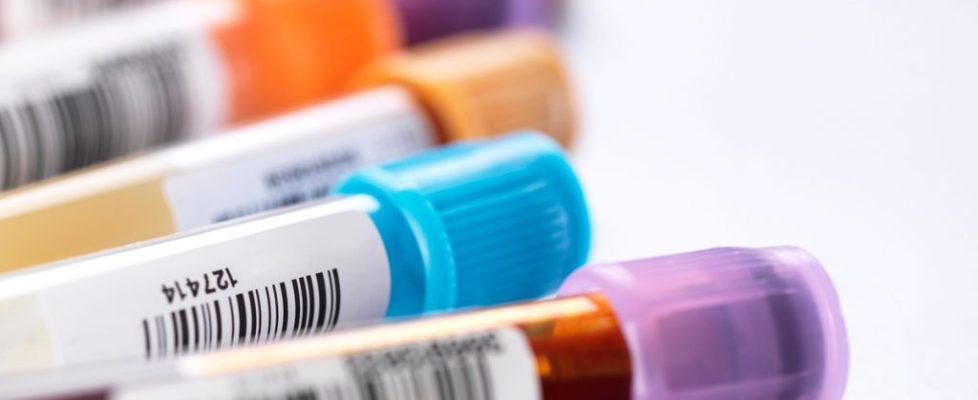How can tracking biomarkers improve your drive?
Improve Your Drive
Drive is more than just the desire to have sex. Drive is the motivation to get out of your bed in the morning, to build a career, to create, and to make a positive impact on your life and the lives of others.
The Neuroscience of Motivation and Drive
The neuroscience of motivation and drive explores the underlying mechanisms in our brain that influence our behaviors, desires, and determination. Several brain regions and neurotransmitters play essential roles in shaping our motivation, including the prefrontal cortex, the dopamine-producing nucleus accumbens, the amygdala, the hippocampus, and the hypothalamus.
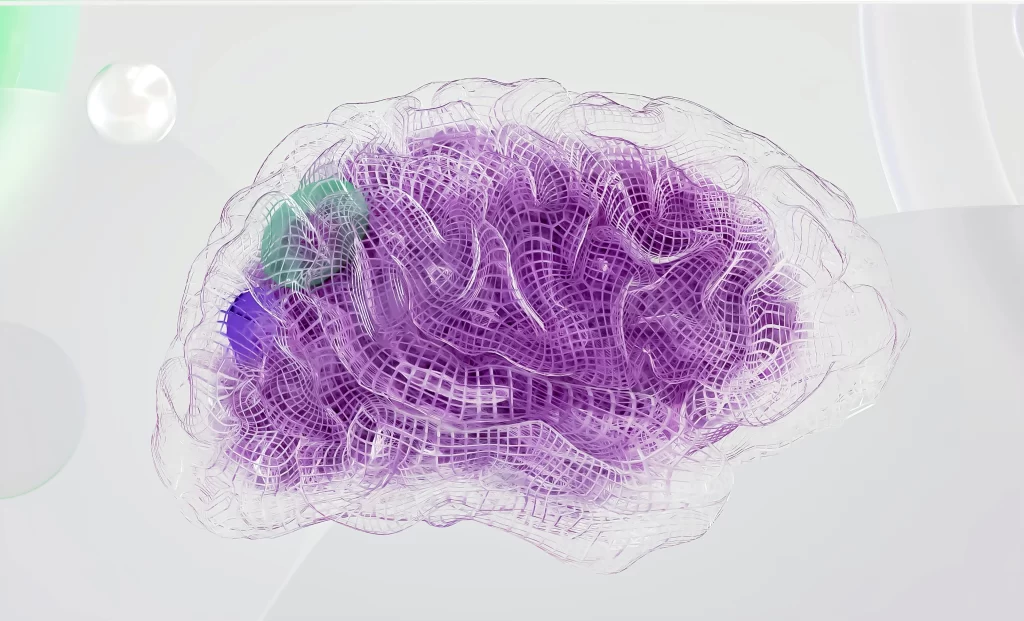
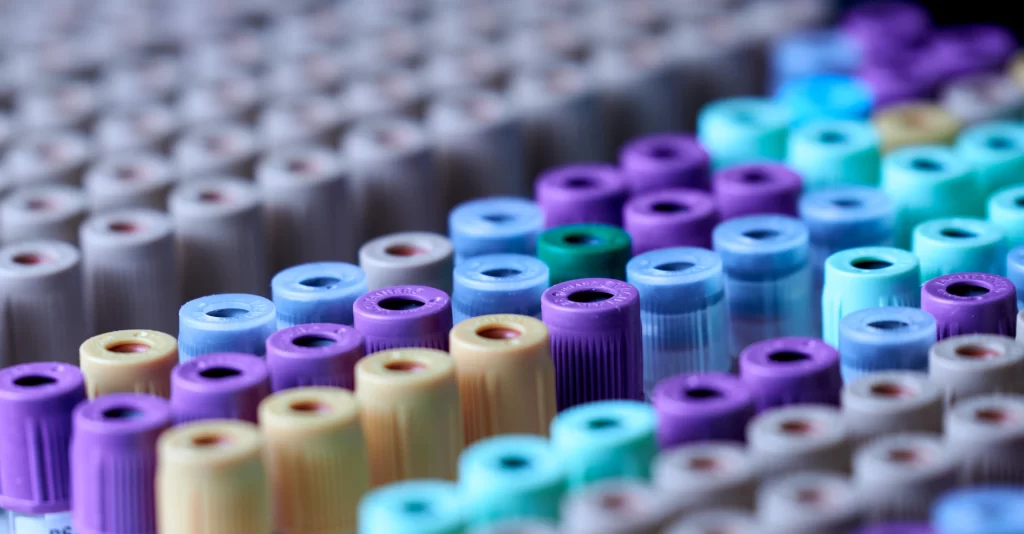
Assessing and Improving Your Drive With Regular Bloodwork
Bloodwork can provide valuable insights into how our hormones and other markers work synergetically to help us achieve our goals. While it does not measure motivation directly, targeted bloodwork is the best indicator of what areas of your health you must balance to regain control of your life.
Motivation and Life Satisfaction
When thinking of drive and motivation, the first association is often success in business or checking off to-do lists. But healthy motivation is more than that – it’s crucial to life satisfaction. It impacts goal achievement, a sense of purpose, enjoyment, perseverance, and feelings of personal growth.

Which biomarkers are closely connected to drive?

Testosterone has an impact on behavior patterns, including aggression and dominance. It also stimulates competitiveness and enhances self-worth. Testosterone can rise or fall with engaging in sexual or competitive activities. Insufficient testosterone may lead to diminished confidence and decreased motivation. It can also impair concentration and induce feelings of sadness. Additionally, low testosterone can disrupt sleep patterns and result in a lack of energy.[1]

The fluctuations in cortisol levels directly influence the degree of motivation. Even slight elevations in cortisol can provide sudden bursts of energy, triggering a fight response to stimuli. Additionally, these increases can temporarily improve cognitive abilities, aiding in successfully resolving potential threats.[2] On the other hand, chronically elevated cortisol can have detrimental effects on one’s drive, including irritability and difficulty concentrating.[3]

Chronic inflammation in the body has been linked to decreased motivation and drive.[4] Measuring inflammation with a blood marker such as hsCRP can indicate if that is a potential factor affecting motivation.

The thyroid gland regulates metabolism and energy levels. Abnormalities in thyroid hormone levels can lead to fatigue, lethargy, and decreased motivation.[5] This is primarily caused by hypothyroidism, a condition caused by the thyroid gland not producing enough thyroid hormone, which is indicated by high levels of TSH in the blood.[6]
HERE’S THE DEAL
Why choose Dr. Miltie, Powered by SiPhox?
The lowest cost per biomarker testing, at-home sample collection,
interactive reports, and actionable insights.
At-Home Testing
No more driving to clinics. No more waiting in lines. The sample collection kit lets you collect your sample using only a few drops of blood.
Extremely Affordable
Blood testing is expensive. But it shouldn’t be. Meet Dr. Miltie, the lowest-cost per-biomarker test on the market.
Measure Progress
Users tell us that regular testing is key to reaching their goals. Whether you want to lose weight or have more energy—we have your back!
Actionable Insights
Personalized insights sets you up for success. Paired with your favorite wearables, our system creates insights to improve each biomarker.
COMPREHENSIVE TEST KIT
17 Included Biomarkers
Our at-home test kit contains the biomarkers you need to provide you with the best overall snapshot of your health.
Base
Cardiovascular Health
Hormonal & Nutritional Balance
Hormone+
Inflammation
Metabolic Fitness
TG:HDL Ratio
Vitamin D
Triglycerides
Total Cholesterol
TC:HDL Ratio
Testosterone:Cortisol ♂
Testosterone ♂
LDL
Insulin
Homocysteine
HDL
hs-CRP
ApoB:ApoA1
Cortisol
DHEA-S ♂
Estradiol ♀
Ferritin
TSH
FSH ♀
HbA1c
ApoB
ApoA1
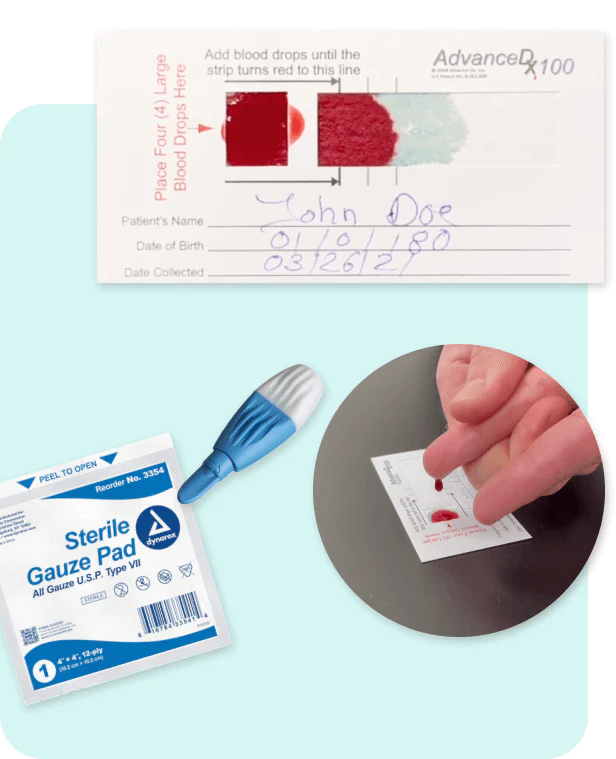
A FEW DROPS OF BLOOD
Is a few drops of blood really enough?
That’s right! A few drops of blood is all we need to test 17 biomarkers. Sounds too good to be true? Far from it…
Our sample collection card, the ADX1001, is an alternative collection method, similar to an SST tube. Red blood cells are separated without a centrifuge, enabling the laboratory to perform tests on dry blood.
Are results accurate? Yes! We process samples in a 3rd party CLIA-certified lab. The test results have been cross-validated against standard finger prick and venous draws.
SELF SAMPLE-COLLECTION
Can I really collect my own sample?
Each kit contains a sample collection card, three adjustable lancets, band-aids, sterile gauze, an alcohol pad, and instructions.
Drawing your blood sounds scary at first. Especially if it’s your first time doing it. We’ve taken the time to make the instructions as easy to follow as possible.
Not only that, every customer can schedule a live one-on-one session with our certified phlebotomist for FREE (a person trained in collecting blood samples).
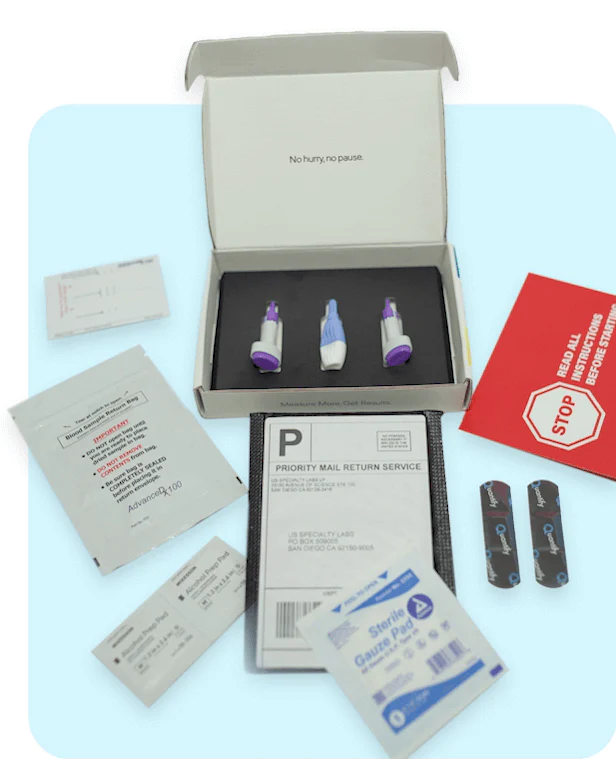
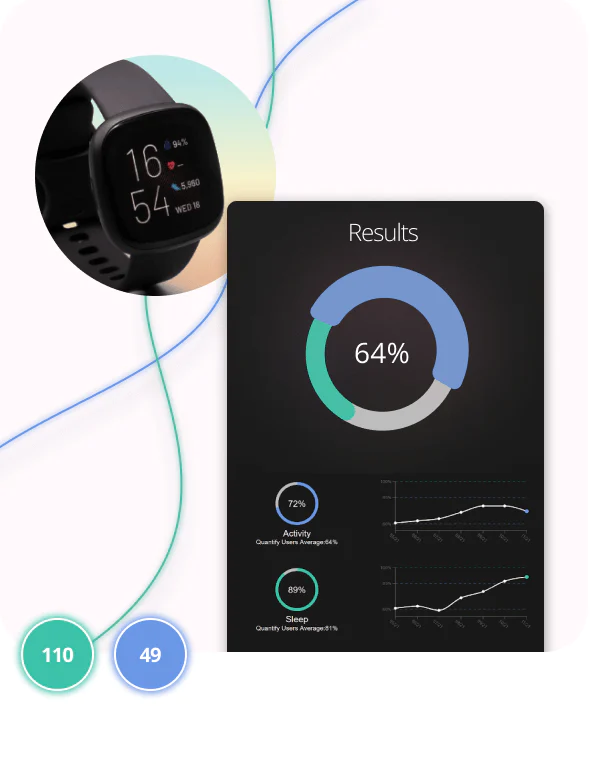
PERSONALIZED REPORTS
Ok, my results are in. What now?
This is the best part! After processing your sample, we create a complete report for each of your 17 biomarkers.
You can then access your reports from your personal reports dashboard. Each report comes with an easy-to-understand graph and personalized insights you can use to improve each biomarker.
The dashboard lets you connect your favorite wearables to make your reports even more insightful. Improved sleep and activity scores are highly correlated with improved hormonal balance and lower inflammation in our user base.
CORRELATE YOUR DATA
Include Your Wearable



Frequently Asked Questions
If your question is not found below, feel free to email us your question at: support@DrMiltie.com
Is the SiPhox Health blood test kit equivalent to standard labs?
How are you able to offer the lowest cost per biomarker in the industry?
Which biomarkers are being tested?
Why should I use a wearable with SiPhox Health?
What wearable devices are compatible with SiPhox Health?
How do I view my test results?
What makes SiPhox Health Reports unique?
Can I give my kit away as a gift?
I’m having trouble collecting enough blood for the test, what can I do?
I think I messed up my collection card. What do I do?
What is the Hormone+ Panel?

